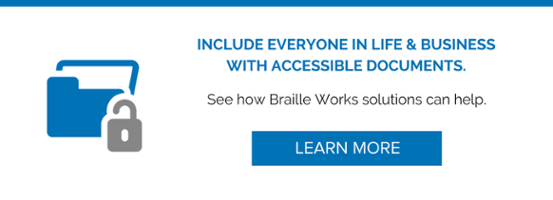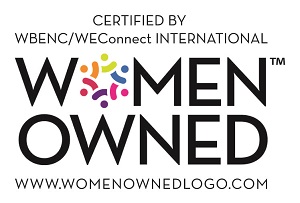What We Learned From Winn-Dixie and the Future of 508, WCAG Compliance
Published onUntil June 13, 2017, there had been an ongoing debate about who is required to provide ADA compliant/accessible websites and electronic documents. A judgment against Winn-Dixie in a Florida court cleared up any confusion. Winn Dixie was found to have violated the rights of a person(s) with a disability in three critical areas of their website. An inaccessible website is a barrier to a client with a visual impairment or a reading impairment. This is now ruled as a violation of the American Disability Act (ADA, of 1990).
What the Winn-Dixie Ruling Means
The ADA requires all businesses to remove barriers, to allow equal access for persons with disabilities. The ADA went on to include that a barrier can be a communication barrier and all organizations must find a way to accommodate a person with a communication disability, and have this policy in writing. Some businesses assume that being ADA accessible means removing architectural barriers and providing verbal or written assistance. This is proving to not be the case, and not being in compliance could create more hassle than it is worth. Look at the many companies that have found themselves on the wrong side of ADA laws.
Clearly, Winn-Dixie went into the trial assuming they were going to win. Why else would a major company risk such negative press and a costly loss? Many companies have attempted to settle these claims quietly, willingly self-correcting. Or, if they were lucky, the complainant opted for structured negotiation to seek resolution; a route that avoids the judicial process altogether. The Winn-Dixie case is the first ruling where the WCAG 2.0 AA standards, which Title II agencies must follow, were strictly enforced in a Title III organization.
The tides are turning. Equality is being enforced. While there is no organization that oversees the application of ADA compliance, it is now clear that if a complaint is filed with the courts, the Office of Civil Rights are not showing leniency when it comes to protecting the rights of people with disabilities.
Avoiding ADA Violations and Removing Communication Barriers
The most important thing an organization can do is rethink ADA compliance; start with all people in mind and you will service everyone.
Learn more about accessibility. Research WCAG 2.0 AA and accessible documents, ADA compliance, accessibility and how these guidelines affect your company.
Have an ADA Compliance person on staff or as a consultant to look at every aspect of communication: from standard forms to websites to PDF attachments.
Have an Accessibility Statement, which is accessible, available in all formats (braille, large print and audio) and is easy to find online. The Accessibility Statement should outline how to access or request accessible documents, materials and/or services from your organization.
Have an accessibility procedure/policy. This is required in the law and if followed it can protect your organization, if a complaint is filed.
Train all staff members in accessibility and company policy. Many organizations have accessible documents, and websites, but if a person with a disability has an encounter where he/she is denied access, the odds are your organization will be found liable. Training staff is a vital part of ADA compliance.
Remember: everything needs to be compliant. Just because a website is accessible doesn’t mean the attachments are. Also, as Winn-Dixie taught us, it is up to your organization to audit all third party services and products that provide ADA compliance. Trust a document remediation company to handle accessible documents: braille, large print, audio and 508 remediation – WCAG 2.0 AA.
Put people first. Yes, ADA compliance is an added expense; however, there are many benefits to reaching all people and to being recognized as an ethical organization. If an organization is caught cutting corners in one area, it’s likely that other areas are lacking compliance.
Learn from Winn-Dixie and make ADA Compliance a priority, so your organization never finds itself on the wrong side of the law.
Categorized in: Accessibility
This post was written by






Comments are closed here.